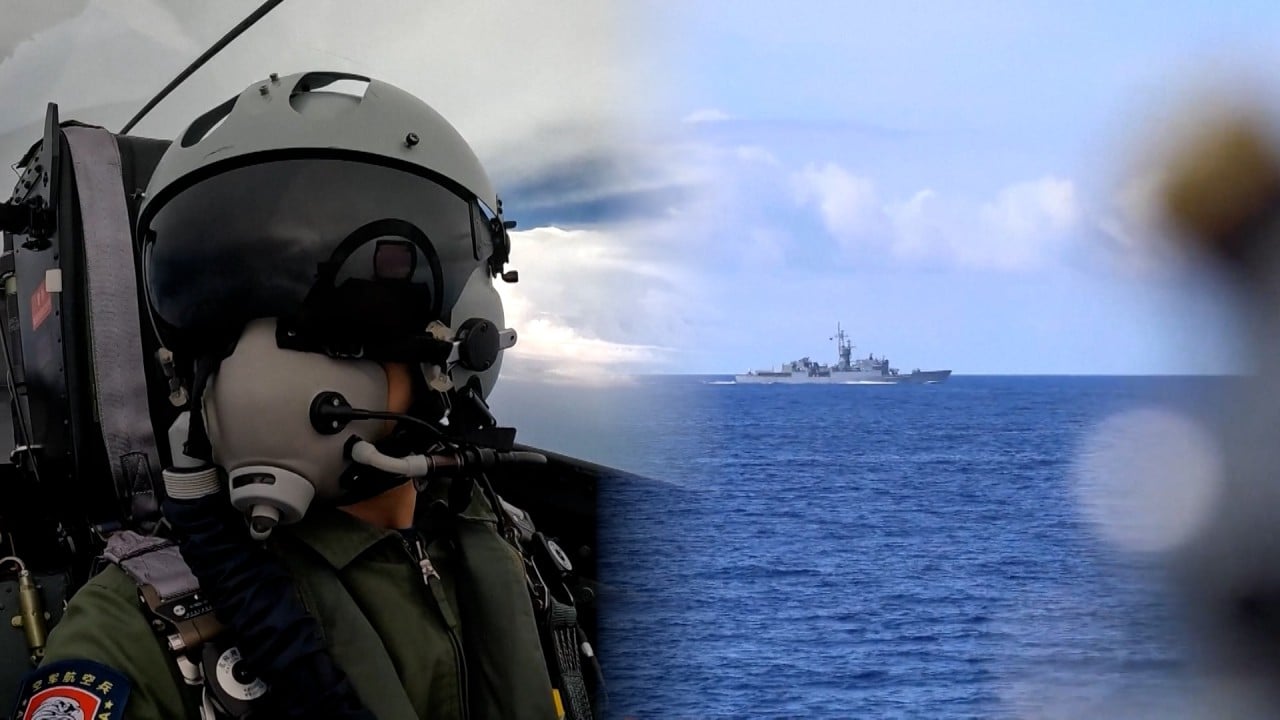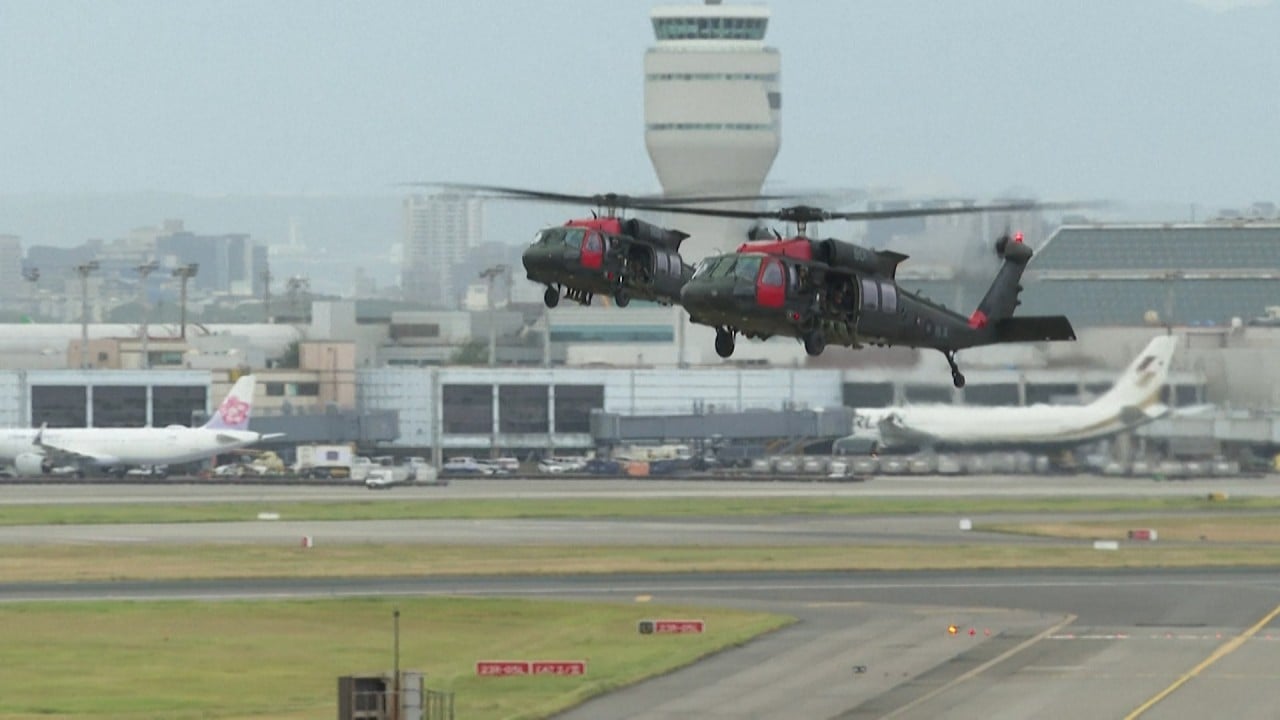
Taiwan boosts defence budget to record US$19 billion amid PLA sabre-rattling
- Next year’s spending – which needs approval from the legislature – is up 4.6 per cent from 2023, Premier Chen Chien-jen says
- Much of it will go towards improving the island’s defences against growing threats from Beijing, according to military officials
The spending – approved by the self-ruled island’s cabinet on Thursday – is up 4.6 per cent from 2023, Premier Chen Chien-jen told reporters in Taipei after a meeting on the government’s budget for next year.
The defence budget – comprising NT$440.6 billion for the military, NT$94.3 billion for “special” expenditure, and NT$71.9 billion in supplementary funds – still needs final approval from the legislature.
“It accounts for 15 per cent of the spending,” Chen said, referring to the military portion in the overall budget of NT$2.88 trillion for next year.
Much of the spending will go towards improving the island’s defences against increasing threats from the PLA, which has rapidly expanded its presence in the Taiwan Strait and the region in recent years, according to Taiwanese military officials.
That includes NT$130.6 billion to develop new weapons, up NT$33.6 billion from 2023; NT$131 billion for operational maintenance costs, down NT$2.6 billion from this year; and NT$179 billion for personnel and training, an increase of NT$400 million.
Of the special funds, NT$45.3 billion will be used to buy new-generation warplanes from abroad, while NT$49 billion will finance a programme to improve the island’s air force and navy.
The defence budget amounts to around 2.5 per cent of Taiwan’s GDP, and marks a 38 per cent increase compared to the military spending when President Tsai Ing-wen took office in 2016.
But compared to Beijing’s military spending “there is still a lot of room to grow”, according to Su Tzu-yun, a senior analyst at the Institute for National Defence and Security Research, a government think tank in Taipei.
Beijing views Taiwan as part of its territory and has not renounced the use of force to bring the island under its control. The PLA has intensified its sabre-rattling near Taiwan in recent years in a warning to pro-independence forces and as the island moves closer to Washington.
The United States, like most countries, does not recognise Taiwan as an independent state but is opposed to any unilateral change in the cross-strait status quo by force.
Su said that while Taiwan’s military budget could not be expected to catch up to Beijing’s, the authorities needed to steadily increase spending to maintain the island’s defence capabilities.
“It would be reasonable to increase it to US$25 billion, which would be about 3 per cent of GDP,” he said.
Chieh Chung, a security researcher at the National Policy Foundation, a think tank affiliated with the main opposition Kuomintang party in Taipei, noted that the defence ministry would have a “huge” weapons bill next year.
“This explains why there will be a record increase in its spending,” he said.
But he noted that NT$2.6 billion had been cut from operational costs for next year, while funds for personnel and training had increased by just NT$400 million.
“We may get a number of new weapons, but not adequate funds to keep them in good operational status,” Chieh said.
At least 9,100 Taiwanese are expected to be conscripted into the military for a year in 2024. It is an extension of the current four months of training, with the aim of improving the standard of the island’s troops so they can take on the PLA in the event of a cross-strait conflict.



